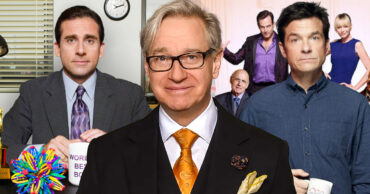This past Monday, the Real Housewives world, Bravo, and the reality TV landscape were rocked to the core by the suicide of Russell Armstrong, husband of Real Housewives of Beverly Hills star Taylor Armstrong. Armstrong’s tragic death has been speculated to have been the result of growing pressure from the upcoming premiere of the second season of The Real Housewives of Beverly Hills, which was slated to premiere on September 5th. In light of recent events, however, the premiere might be postponed, or as some analysts are calling for, scrapped indefinitely. One thing that has been verified when it comes to the future of the show has been Bravo’s decision to edit Russell and Taylor’s storyline out of the season entirely, which is going to be hard given that it was a main plot point of the season to begin with.
As harrowing as this past week has been for Russell Armstrong’s family (especially Taylor, his wife), and everyone involved with the production of the show, it would seem that any press concerning the matter would be at a minimum out of respect for the family. Instead, the press machine is still going full steam ahead with more secrets and speculation on the Armstrongs’ turbulent marriage being released on a daily, if not hourly, basis. But that’s not what has been really sickening me this week, although it should be the only thing that makes my stomach turn.
Russell Armstrong’s death has sparked a media frenzy on whether or not Reality TV needs to be re-evaluated in terms of how much is too much and where the line should be drawn in casting for the shows and whether or not mental evaluation of the participants should be implemented. Only a small pocket of the media has posed the question of the dangers of reality television this past week, while most have just reported the facts surrounding Russell Armstrong’s passing and the aftermath as they were released in finely tuned press releases and sound bites. Nevertheless, the commentary concerning the ethics of reality TV has been a hot topic and has, in some aspects, transcended news of Russell Armstrong’s death, which launched the conversation in the first place. While factions of the news media and TV critics are shouting “Halt!” and/or asking for a reformation of reality TV, I’m asking the media and critics “Why are you concerned and/or asking this now?”
The sudden critical concern for the well-being of reality show stars has left me with a sour taste in my mouth, because this inquiry should have been asked a long time ago when reality TV was in its infancy. No one flinched when MTV’s The Real World went from focusing on thoughtful social commentary to a haven for hook ups, booze, and monotonous behavior. There wasn’t a “foul” called when a Survivor contestant contracted malaria after his tenure on the CBS reality hit series, while others have shown signs of being sick during production of the show. Remember Paula Godspeed, the American Idol hopeful who committed suicide after her appearance on the show? Well, not enough noise was made then over the state of reality show contestants’ mental health, because we are still subjected to American Idol tryout episodes which still air the embarrassment of AI contenders as they audition for the show.
Trying to scold reality TV this late in the game is the equivalent of attempting to get your teenager to curb behavior that you let slide when they were infants. If you didn’t instill proper behavior in them when they were growing up, then you will have one hell of a time trying to course correct the way your teen acts.
Now, I’m not saying that reality television is the greatest creation known to man nor am I trying to take up for it. I only keep up with a handful of reality shows and also feel that the genre is a nuisance to scripted television because of financial and production reasons. I’m only saying that the unexpected attention to reality show practices this past week has been a bit… sensationalistic and accusatory in a sense. Let me explain.
Let’s start with the sensationalistic aspect. Nobody was questioning the ethics of reality TV last week or the week or month before. Sure there are books on the subject and/or the occasional blog post article that discusses the phenomenon in full, but none of those write-ups have been brought to the forefront, warranting an “end all, say all” conversation on the matter. During this season of The Real Housewives of New Jersey, I’ve been pretty vocal about how much I’ve taken a dislike to the familial drama between cast members and relatives Teresa Giudice, Melissa Gorga, Kathy Wakile, and the husbands of the former two women, because of the uneasiness of seeing a family fight each other on television. No one decided to sit down and have a continuous conversation about how that representation was in bad taste.
So why, after Russell Armstrong took his life, has the media all of a sudden gotten worried about potential and current reality stars’ mental health? Maybe because it’s the hottest story in town now? Think about it. In one to two weeks time, the media and critics’ interest in the state of reality television will be replaced by fall TV, which will roll out The X-Factor, a new season of Survivor, and other new and old reality TV fare. All will feature a new crop of reality star hopefuls ready for their 15 minutes in the spotlight.
In other words, no one will cry for Simon Cowell to not be so harsh on a contestant or for Jeff Probst to pull back on the smugness as he stands tall and fed, while the Survivor contestants look weak from hunger. In short, Russell Armstrong’s death will be a thing of the past for those bloggers and writers of the media, and their questions of when should reality TV draw the line will be put in the file cabinet until the next reality show related tragedy occurs.
As for the accusatory bit, the media seem to think that they’re blameless. They’re heaping accusations upon Bravo and the networks responsible for these shows (as well as the viewers), when in reality they’re equally responsible for creating the reality monster. Without the media, there wouldn’t be a Snooki. We wouldn’t know about Teresa Giudice’s money problems or be able to see how Kate and Jon Gosselin’s marriage crumbled before our eyes. Even this weekend, all eyes were on the (2nd or 3rd?) wedding of Kim Kardashian, another reality show star whose life is played out in the numerous websites ranging from TMZ to even Time on occasion, which had major media outlets covering that story as well. Now to be fair, sites like TMZ or Radar Online are on constant watch when it comes to reality show stars’ lives, but what they report ends up on the highly respected news sites such as Salon, The L.A. Times, and many more.
I read an article on a site that was pointing the accusatory finger at Bravo, asking if ‘reality TV has gone too far.’ But at the bottom of that page, there was a link to another article, this one discussing the marital troubles of another reality star. Is that not blatant hypocrisy? How can the media criticize something that they’re simultaneously sustaining? It is the media who keeps the drama going once the shows finish their seasons, dredging up court documents and foreclosure notices for the public to see.
In the end, the questions concerning the ethics of reality television are just as dated as the genre itself. Nothing about casting, editing, and situational conflicts are new, which means the next batch of reality star wannabes and hopefuls have a whole manual of sorts to study and evaluate before signing up for the next reality hit. If something tragic happens to one of those hopefuls, best believe the media will be there with their analysts, their essay-length articles, and their repackaged questions on just how far reality TV has gone. Russell Armstrong’s story will be replaced by a new unfortunate situation and more scapegoats will be created.
I think it’s past time that the media, critics, and even bloggers like myself stop and think about our role in the reality TV media circus. Are we Dr. Frankenstein or are we the Monster himself? Or are we both?
Additional writing by Sam McPherson
 Follow Us
Follow Us





